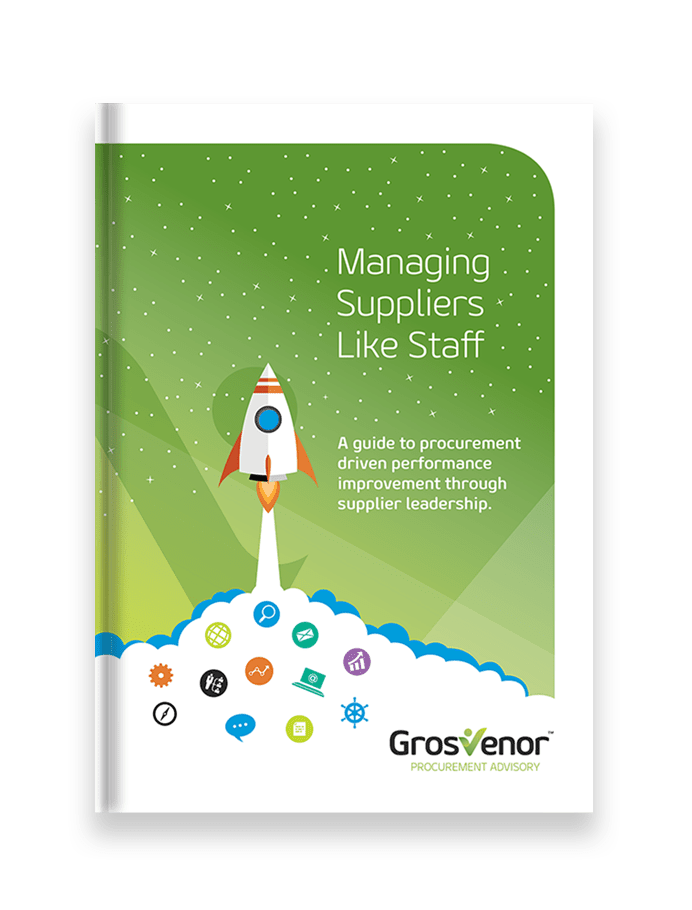10 tips to improving supplier relationship management

How to improve supplier relationship management
Organisations successful in managing supply chains understand the value of managing effective relationships with their suppliers. These organisations have a knack of building trust and confidence with their suppliers which leads to knowledge sharing and the identification of improvement opportunities.
Based on two decades of establishing and supporting major supplier relationships for Australia’s largest organisations, here’s Grosvenor’s 10 best tips to developing improved supplier relationship management and contract performance.
1. Be proactive
Addressing issues, challenges and problems as they arrive prevents them from festering into something more serious. Early and frank discussion and action will build trust and respect.
2. Communicate regularly and effectively
Communication creates a shared understanding. A shared understanding helps avoid confusion and disagreement. Effective communication includes a regular and healthy dose of face-to-face discussion. Contract Managers should avoid hiding behind emails. And remember, communication is a two-way street.
3. Establish roles and responsibilities and remember them
Performance = ability x motivation x clarity of role description. Both parties need to clearly understand their own role, the role of their counterpart and how the two fit together to leverage value and achieve mutually beneficial outcomes.
4. Understand the contractual obligations
There is a widely held view that a good contract relationship is one where the contract can be used as a door stop! Right? Wrong.
Service takers, contract managers and shareholders alike need to have confidence that the supplier is delivering what they are being paid to.
In a positive contract relationship, both sides understand and uphold their obligations.
5. Behave ethically and honestly at all times
Trust is hard to gain and easy to lose. Gaining a reputation for behaving ethically and honestly will go a long way to developing trust and trust will go a long way to developing relationships.
6. Regularly review the deliverables and performance
Every contract manager wants to know that they are receiving the service they need and to the standard they expect. Performance review should be more than just an exercise in measurement it should be an exercise in continual improvement.
7. Identify and monitor risks
Risks can’t be managed until they are identified and monitored. Work with your supplier to ensure that risks are identified at all levels of operations.
8. Seek professional advice
You probably don’t diagnose your own medical problems or fix your own car. Know when the time is right to seek third party advice – be that from a lawyer, a subject matter expert or a consultant.
9. Be reasonable and fair
Nobody responds to a manager who is heavy handed, unreasonable or unfair. Be consistent in how you manage your supplier. Take a balanced approach and be mindful of extenuating circumstances that may be impacting upon a situation.
10. Establish the basis of the working relationship
Set the foundations for the relationship from the get-go. That means understanding the relationship you want before you even start the process. Then write a contract, engage the market, manage negotiations and undertake transition in a manner that reflects the intended working relationship.
While not all organisations exhibit these behaviours, those that do, develop stronger, more reliable and more cost effective long term relationships.









 We are all about sharing our expertise to help you and your organisation be the best it can be.
We are all about sharing our expertise to help you and your organisation be the best it can be.